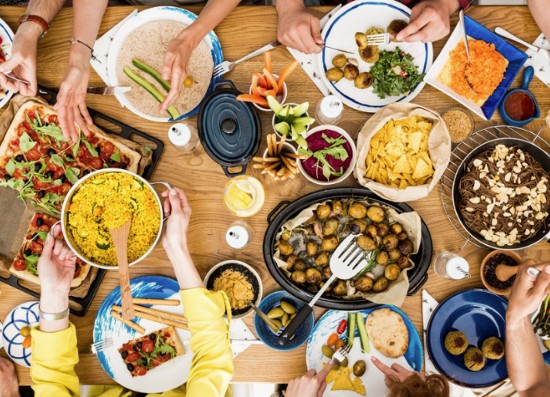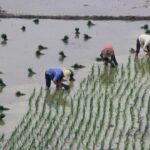I’m an omnivore. If you don’t know what that is, it means I eat a diet that includes fruit, vegetables, dairy and meat. I have friends who are vegetarians, and extended family members who are vegan.
The distinction between the latter two is that vegetarians, according to the Vegetarian Society, don’t eat any meat or meat byproducts but may include products from animals that are not slaughtered including dairy, honey, and eggs.
Vegans, according to the Vegan Society, exclude any form of animal exploitation which eliminates dairy, honey, eggs, gelatin, whey and casein (dried milk ingredients), and even vitamin D3 if derived from animals.
Whereas vegetarianism has been widely adopted in many human societies going back thousands of years, veganism is a relatively recent choice, a conscious commitment to do no harm either by killing or exploiting any animal. Going vegan is an ethical decision. It takes animals completely out of the dietary equation. And becoming vegan is not the easiest of choices in a society where meat, dairy and eggs represent a significant part of the vast majority’s diets. In The Guardian, recently, Peter Godfrey-Smith described his effort to go vegan in an article entitled, “My body resists veganism. What’s the most ethical alternative?” It’s worth the read.
Can We Go Livestock Free While Still Eating Meat?
I have always had the conviction that I would dispense with the eating of livestock if the technology to create cultured meats grown from individual animal cells were to reach commercial volumes. That would mean there would be no need to kill animals for food. Cultured cells multiplying in factory environments would provide all the meat protein we need. Some vegans might have a different opinion related to the initial harvesting of the growth cells from living animal sources, but very few would be needed for this purpose to create the feedstock for the bioreactors that would churn out the end product.
Can we produce dairy and eggs in the same way? Any reference to “cultured” when referring to dairy doesn’t mean the same thing as it does for meat. Milk substitutes exist today that vegetarians and vegans use. These are made from nuts (not necessarily good for those with nut allergies) and soybeans. Egg white equivalents also exist as acceptable substitutes for vegetarians. Many vegans are more hesitant to use these foods in their diets.
A Bigger Vegan Dilemma: What if Plants Are Conscious?
Recently researchers have ascribed plant behaviours to conscious decision-making. In one experiment using bean plants, time-lapse photography showed that the growing tips of the beans sensed the presence of nearby canes and consciously sought them even when 30 centimetres (more than a foot) away.
Other consciousness claims are associated with response mechanisms such as that of the Venus Flytrap that responds when an insect alights on it, or plants that when touched curl their leaves. Are these cognitive or electromechanical and chemical responses?
Before I go further it should be noted that only recently did humans associate consciousness and intelligence with animals. Before this, animals were considered automata, like biological, pre-programmed robots. But we know better now. So is plant consciousness and intelligence a logical next step in our growing awareness of all things in nature? Should we treat plants as being conscious and aware? The mythology certainly is reinforced in movies like Avatar.
So what are the facts about plant physiology? We know they use signal pathways similar to our nervous system. We know that electrically charged ions help to move water throughout them. While plants have no neurons they do exhibit electrical conduction. Some researchers have even equated the plant’s roots with being equivalent to an animal brain.
Before I go further I want to refer you to an excellent article to read on the subject. It was published in the journal, Protoplasma, online in November of 2020. The authors attempt to disentangle intelligence from consciousness when describing plant behaviours. It analyzes 12 arguments both pro and con related to the subject.
For vegans, plant consciousness may present an ethical dilemma. If a plant is conscious when we pick a head of lettuce does it feel pain? Those who are vegan and believe in plant consciousness do have an option. It is called fruitarianism. Fruitarians only eat raw fruit and seeds. Some only eat these after they have naturally fallen to the ground.
Will the Food We Eat in 2100 Be Grown or Manufactured?
If we could culture all of our food initially through the harvesting of individual cells from plants and animals to produce synthesized meat, vegetables and fruits, all the ethical dilemmas for choosing a preferred diet go away. The world that emerges would be very different from the one today. Farms that grow what we eat today would no longer be needed. The landscape of our continents would return to a natural state.
Is this our future? Some believe we are moving in this direction. And others equate it in religious terms, a return to Eden.









